June 19, 2023
Mandarin Immersion (Part 36)
By Simon J. Lau


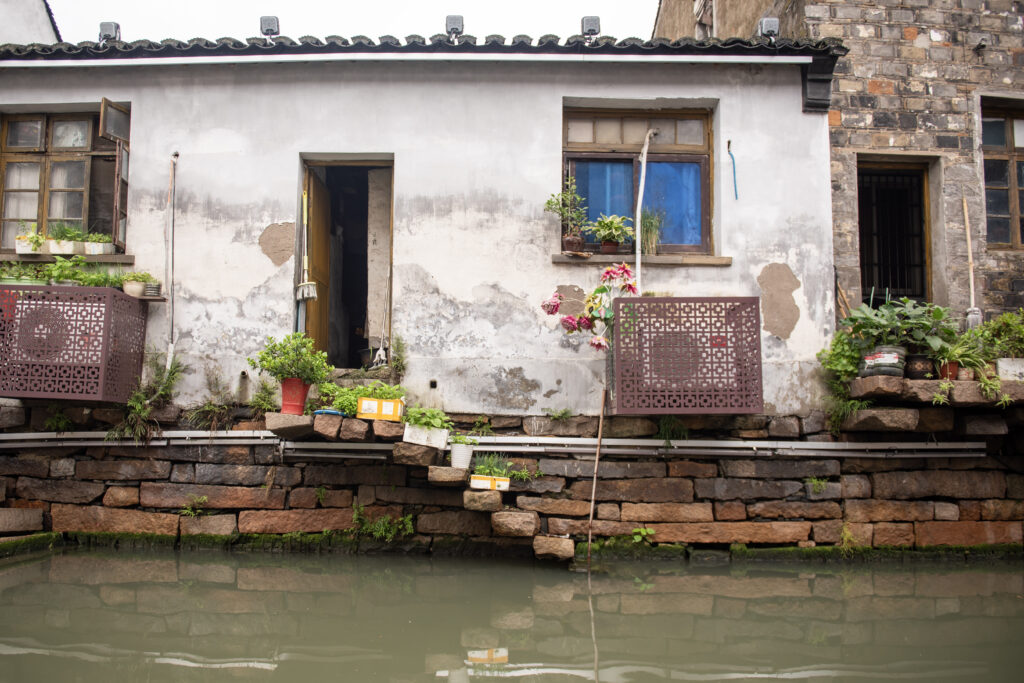
In the morning, I visited Shantang Street, sometimes referred to as the “First Street in Suzhou.” It was constructed in the 9th century during the Tang dynasty. This street, along with Pingjiang Road, declared a “Historical and Cultural Block of China” in 2015, make up portions of what is considered the Old Town of Suzhou. Besides the canals and bridges, I find the private homes particularly interesting. You can occasionally catch a glimpse into the daily lives of those who live here.
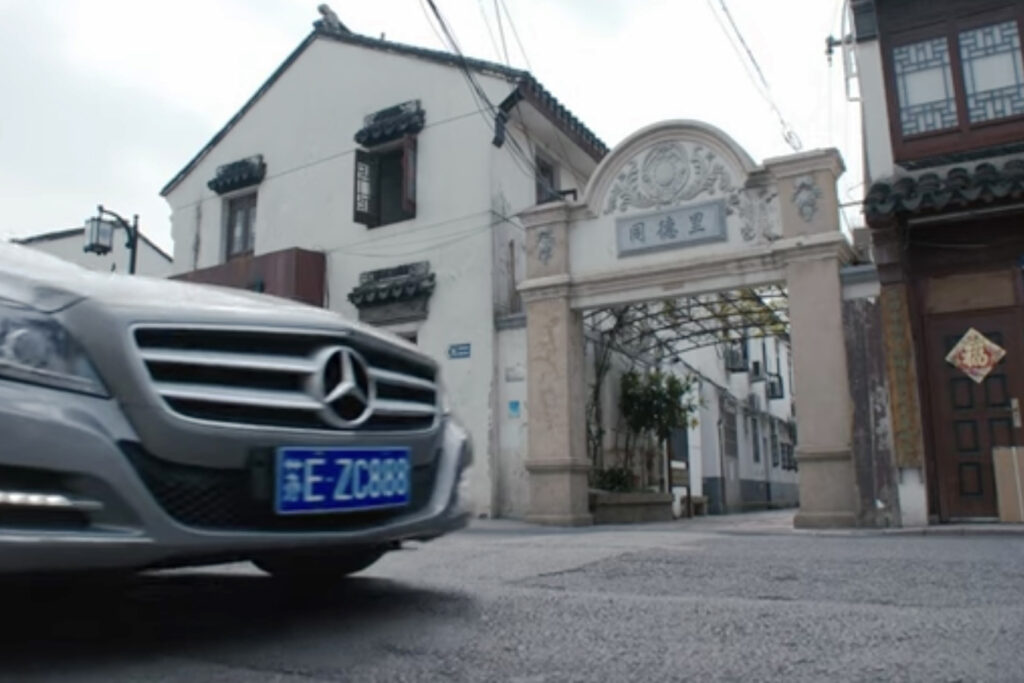

In the afternoon, I visited the film location for my favorite Chinese show, All is Well. It was very close to my hostel, and I didn’t want to visit Suzhou without walking through the neighborhood.
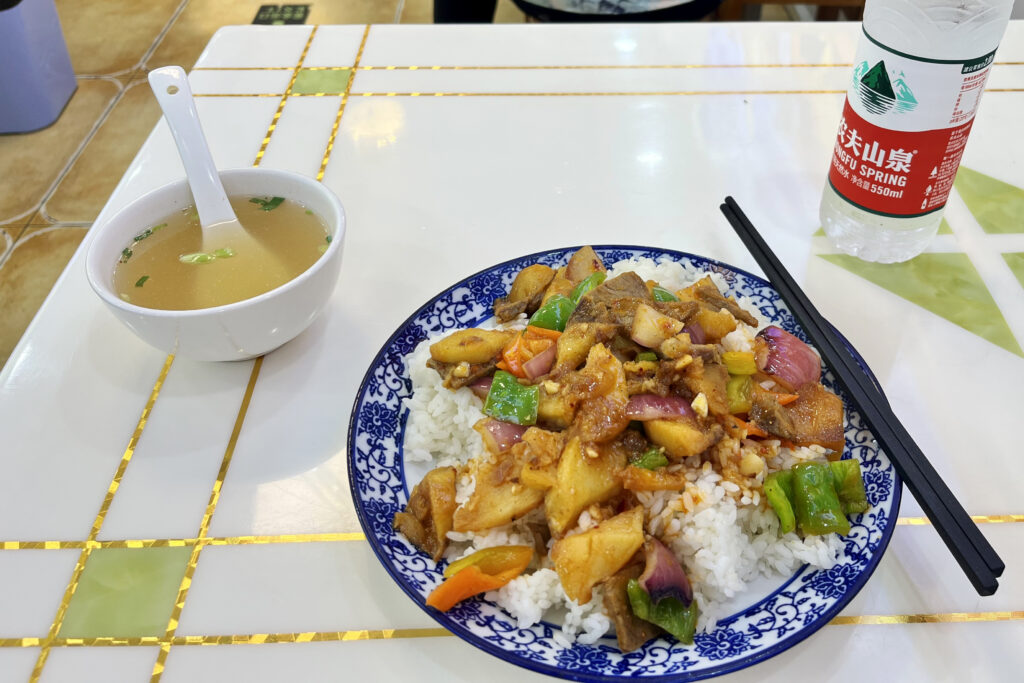
As I was leaving, I decided to have dinner at a nearby Muslim restaurant. They were known for their beef noodle soup, but since I had that for lunch, I settled on a rice dish. As I finished my meal, I got caught up in another rainstorm. According to my server, the rain these last few days had been particularly intense.
While waiting for the downpour to break, I took the opportunity to chat with my server. He was Hui, a member of the Muslim minority group found mainly throughout the northwest region of China. They are Chinese-speaking adherents of Islam. For instance, the man I spoke to wore a white cap (taqiyah), and the woman who worked with him wore a form of headscarf. Otherwise, they looked Han Chinese. I had never spoken with a Hui person before, so it was fascinating for me to learn about his hometown, language, and traditions.



After some time, I gave up on waiting and braved the storm. I underestimated it. This is what I was gifted with. Not only were the roads flooded, but the sewage began to back up. 🤮 There was only one way to rectify this issue: a pit stop at a bar for my nightcap. 🍸
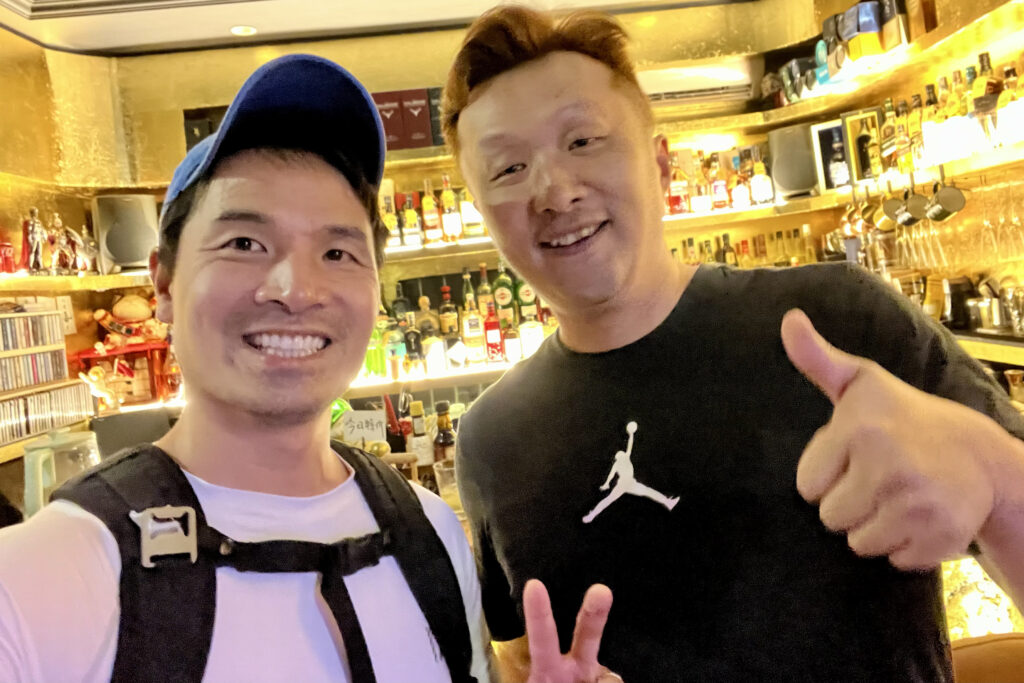
Most of the bars I stopped by were closed due to the heavy rain, but I was fortunate to stumble into this place. The bartender had a super interesting history. He was originally from Shanghai but had worked in various hospitality roles across the country. Also, although he only graduated from junior high, he was proficient in English. I preferred to speak in Mandarin, but his English came in handy when I needed him to explain some complex topics.
The discussion I found most interesting was our conversation about forms of discrimination in China. In America, due to our ethnic diversity, the most common form of discrimination is racial discrimination. However, in China, primarily due to its ethnic homogeneity, geographic discrimination is more common.
For example, he grew up in Shanghai. Shanghai, along with Beijing and Hong Kong, were considered the most developed cities in China and had the wealthiest residents. Given that history, he would often look down on folks from other provinces. For instance, if he met a man from Hunan, he would stereotype him as a thief. A man from Anhui was stereotyped as a mobster, while a woman from Sichuan was labeled as a prostitute. Due to the wide wealth disparities across regions and cities, as well as strict laws governing and restricting internal migration within China, these stereotypes festered throughout the country.
Fortunately, with advancements in technology and the economy, many of these stereotypes have subsided. In fact, after living in places such as Inner Mongolia and Tibet, he now prefers smaller cities to his hometown of Shanghai. I found him to be very interesting.

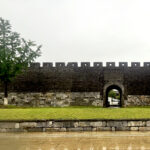


Comments are closed.